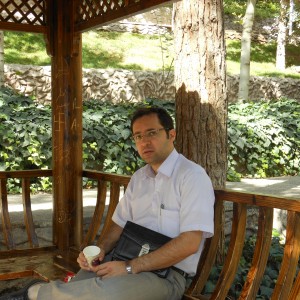Alireza Shamkhalchian
 Alireza graduated in 2008 from Ferdowsi University of Mashhad in Iran with a master degree in the field of Hydraulic Engineering. Alireza graduated in 2008 from Ferdowsi University of Mashhad in Iran with a master degree in the field of Hydraulic Engineering.
From 2008-2014, he worked for a consulting Engineering company where he experienced different responsibilities including expert, project manager, manager of Hydraulic unit and managing director.
Completing his MSc course, Alireza maintained his communication with academic areas. Accomplishing a research project with his MSc University, teaching in various universities, publishing several papers in conferences and journals are examples of his academic activities.
In 2015, he was accepted as an IPhD student in the University of Southampton. His prior research is in numerical modelling of open channel flows which he has studied since his the start of his MSc and which remains a great source of interest. Currently he is focused on ‘Developing high performance numerical models for large-scale flood inundation problem’. |